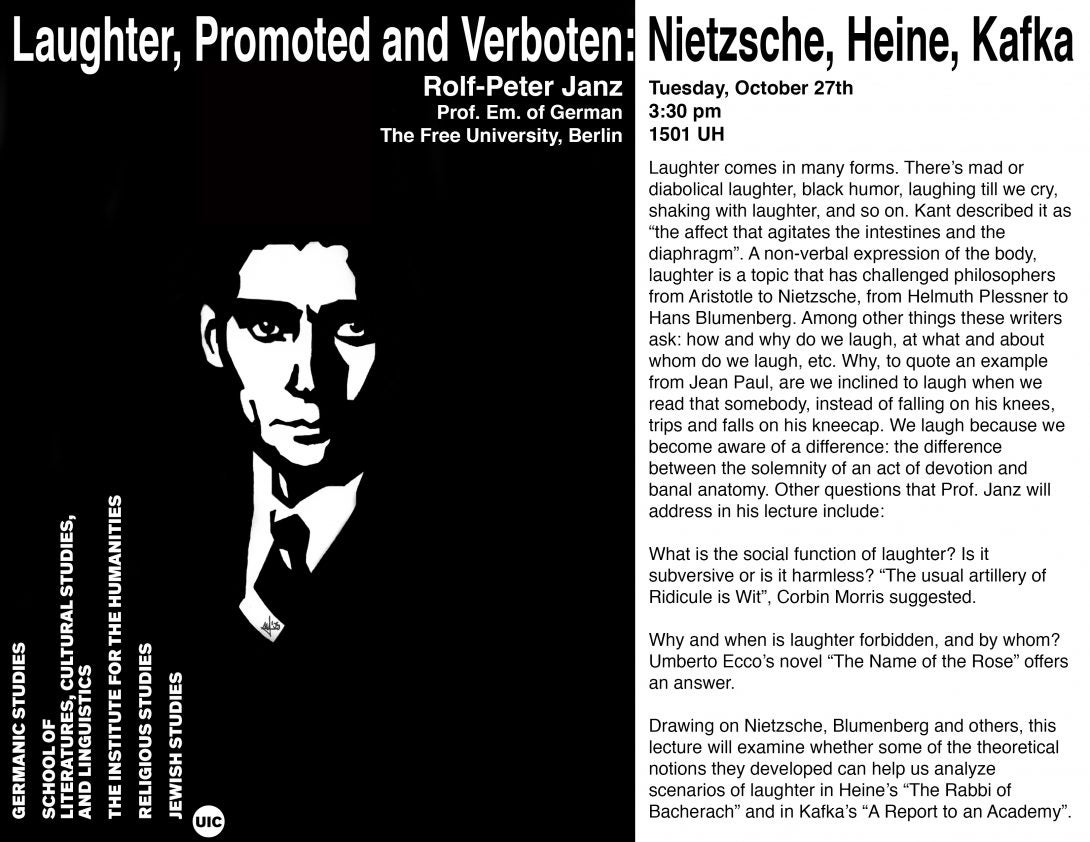Laughter, Promoted and Verboten: Nietzche, Heine, Kafka
October 27, 2015
3:30 PM - 6:00 PM

Rolf-Peter Janz
Prof. Em of German
The Free University, Berlin
Laughter comes in many forms. There’s mad or diabolical laughter, black humor, laughing till we cry, shaking with laughter, and so on. Kant described it as “the affect that agitates the intestines and the diaphragm”. A non-verbal expression of the body, laughter is a topic that has challenged philosophers from Aristotle to Nietzsche, from Helmuth Plessner to Hans Blumenberg. Among other things these writers ask: how and why do we laugh, at what and about whom do we laugh, etc. Why, to quote an example from Jean Paul, are we inclined to laugh when we read that somebody, instead of falling on his knees, trips and falls on his kneecap. We laugh because we become aware of a difference: the difference between the solemnity of an act of devotion and banal anatomy. Other questions that Prof. Janz will address in his lecture include:
What is the social function of laughter? Is it subversive or is it harmless? “The usual artillery of Ridicule is Wit”, Corbin Morris suggested.
Why and when is laughter forbidden, and by whom? Umberto Ecco’s novel “The Name of the Rose” offers an answer.
Drawing on Nietzsche, Blumenberg and others, this lecture will examine whether some of the theoretical notions they developed can help us analyze scenarios of laughter in Heine’s “The Rabbi of Bacherach” and in Kafka’s “A Report to an Academy”.
Sponsored by:
- Germanic Studies
- School of Literatures, Cultural Studies, and Linguistics
- Institute for the Humanities
- Religious Studies
- Jewish Studies
Date posted
Jun 11, 2020
Date updated
Jun 11, 2020